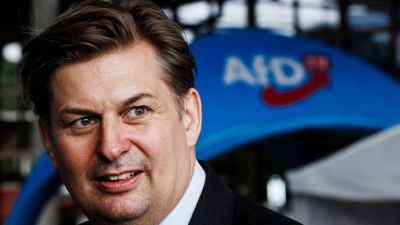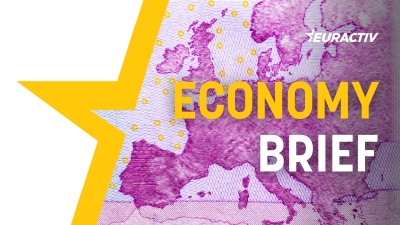The GreenDustrial Deal: To Net-Zero Competitiveness

In the past five years, we’ve witnessed the Green Deal’s (r)evolution. Landmark legislation has been passed, priorities have been established, commitments agreed and ambitious emissions targets set. This month’s 2040 CO2 emission reduction goal was the most recent example of our collective engagement. The next legislature will have to make sure that momentum is not lost.
European manufacturing industry must retain its license-to-operate and continue to maximise its enabling contribution to the Green Deal objectives, while remaining competitive in a thriving EU business and investment climate. In short: we now need a GreenDustrial Deal.
The EU and its member-states, civil society and industry have laid unprecedented groundwork for a modern, resource-efficient, and competitive European economy. In what certainly is now a transitional phase, we must create and maintain the condition for the Green Deal to avoid crashing into its own system boundaries.
With the looming shadow of the energy crisis, war at our borders, and a delicate geopolitical balance, we need coherence and consistency to both deliver on our ambitions of the Green Deal and secure Europe’s economic and social future in a rapidly changing world.
Since its inception, the Green Deal rightly recognized that economic transformation lies at its heart. Europe has indeed emerged as a global leader in emissions reduction, yet climate action and economic growth still run on separate tracks.
On the other hand, China and the US have established comprehensive systems for supporting companies committed to the green transition. These systems not only enable local businesses to become competitively sustainable but also encourage foreign companies (many of which are European) to leave their industrial base for greener pastures.
This is why we believe Eurima’s 2024-2029 Manifesto comes at a key moment, offering our industry’s perspective on five concrete pathways to deliver a successful GreenDustrial Deal.
Energy (efficiency) is priority number one
To deliver the decarbonisation of European industry and guarantee its continued competitiveness we need quick access to affordable and abundant green energy, while maximising energy savings potential based on the Energy Efficiency First principle. A GreenDustrial Deal is needed to avoid a Catch-22 situation: to truly achieve European decarbonisation goals in a thriving society, we need the very products industries produce, while those processes are at risk of not having access to enough zero- or low-carbon energy to decarbonise.
We already see the effect of having one without the other in the tsunami of news stories coming from across the EU. In the Netherlands, to give just one example, grid congestion and high energy prices have already put a halt to some energy intensive industry and construction activities and projects. This cannot be the intention.
Global economic champions aren’t born from reactive investment cycles fuelled by volatile energy prices. They emerge from stable, predictable environments that encourage long-term planning and innovation. At the moment, we are playing a high-stakes game of musical chairs, where businesses have to scramble for unreliable green energy to the tune of surging costs.
Constructing a common solution
The way we build shapes our present and defines our future. To deliver a competitive, low-carbon economy that fosters skilled green jobs, we need a GreenDustrial Deal to shift the way we address construction, a sector that is often seen as too fragmented to be addressed effectively. To overcome this, we need a dedicated clear and comprehensive policy framework to ensure that all efforts are aligned and coordinated. Buildings and construction need to be more prominent in the EU’s priorities and more firmly anchored in the Commission’s organizational structure.
Buildings: renovation as enabler
To deliver our energy consumption and emissions reduction targets we must increase Europe’s renovation rate, which has been stagnating around 1% for decades. For this to happen, we need to create an enabling framework, through technical and financial assistance. We need to acknowledge that the Renovation wave is a societal project with a societal Return-on-Investment and it therefore needs to be an integrated part of a Greendustrial Deal tackling building’s energy efficiency, increasing grid-flexibility, and maximising the integration of renewable energy and demand-side flexibility measures. Building renovation is a job by local industry and SMEs for local communities.
Waste as resource
Another crucial climate neutrality lever that needs urgent attention in the Greendustrial Deal is circularity. To deliver a waste-free Europe we need a circular economy, where the end of one life-cycle is the start of another. Accounting for approximately 25-30% of waste generated in the EU, the construction sector offers great opportunities for improving resource efficiency and material recycling and reuse.
Moving forward, it will be vital to disincentivise the landfilling of valuable resources and, instead, use these resources as secondary raw materials to substitute virgin non-renewable materials.
We find that today’s biggest challenge is recovering ‘post-consumer’ waste generated during renovation or demolition and deconstruction projects. We need the EU to establish an enabling regulatory framework that stimulates the recycling of recyclable materials and facilitates value-chain cooperation.
We need materials like our mineral wool insulation, which is 100% recyclable, to be actually recycled.
The Greendustrial Deal is a Level Playing Field
Finally, to deliver a competitive business environment for all European industries, it is essential we maintain a level-playing field in which all products and materials are judged based on their performance throughout their entire lifecycle, rather than perception. Only by letting a product’s performance speak for itself can we ensure fair competition and innovation.
The EU should recognise the importance of low-maintenance, long-life materials for European climate ambitions. This means establishing sound, harmonised methodologies to ensure that distinctions between construction products remain science-based, promoting material neutrality based on a level playing field.
The Green Deal has shown its potential, but to truly thrive, it must evolve into a GreenDustrial Deal, a pact that integrates climate action with industrial strength, and social resilience, leaving nobody behind.



